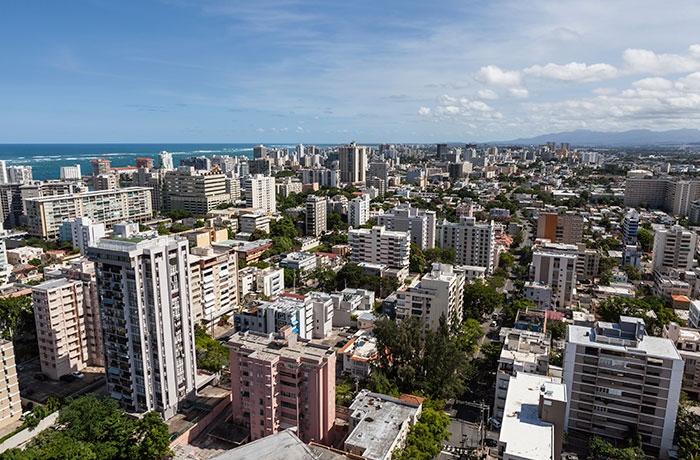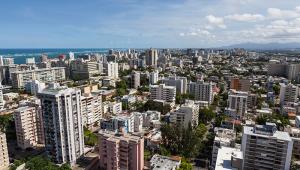700px-san-juan-puerto-rico-shutterstock_133779992.jpg

San Juan, the capital of Puerto Rico
In the summer of 2015, Puerto Rico's governor declared that the island's $70bn debt was unpayable. A multitude of factors contributed to this crisis, from Puerto Rico's colonial status as a US territory to mismanagement from several of the island’s governments.
In 2005, Congress failed to renew tax incentives for pharmaceutical jobs on the island. Three years later, when the global financial crisis hit, Puerto Rico issued various types of bonds in order to secure needed revenue to prevent cuts to services and layoffs of workers. Certain bonds were tax-exempt, and paid a high yield, meaning they were attractive to investors; some of whom, preliminary investigations have noted, employed predatory schemes to take advantage of Puerto Rico’s bond issuance.
The bonds piled up, and the island went deeper into debt. Economic decline, the closure of many pharmaceutical businesses, dramatic job losses, mass migration to the US mainland and reduced tax revenues followed. The island was forced to a point where it could not pay for both its debt and government services. If Puerto Rico were a country, it would be the 13th most indebted in the world.
In 2015, debt crisis legislation called the Puerto Rico Oversight, Management, and Economic Stability Act (PROMESA) was passed by a Republican-led Congress and signed into law by then-president Barack Obama. This law prevented "vulture" funds from exploiting legitimate creditors and holding our country hostage, as was done to Argentina for nearly 15 years.
Among a number of provisions in PROMESA, the legislation established:
1) A moratorium on debt payments, immediate protection from debt lawsuits and a disincentive for so called "vulture" funds to buy distressed debt;
2) An oversight board to promote budget transparency, accountability and balanced budgets and negotiate with Puerto Rico's creditors; and
3) Title III, a fully comprehensive bankruptcy process to deal with all of Puerto Rico's debt and protect essential services.
Puerto Rico was also temporarily protected from lawsuits, but that protection expired on 1 May. It was therefore critical to move forward with the Title III process, with the oversight board filing for bankruptcy two days later. The Title III bankruptcy process will allow for a neutral judge to arbitrate the island’s debts and certify a process for cutting the debt. I hope the process will create greater transparency in the island's finances.
PROMESA marked unchartered territory and was not perfect. But nearly 60% of our children live in poverty. The process is now moving forward so that 100% of Puerto Rico’s debt can be restructured – the only exit offered by the United States Congress to ensure future economic growth and protect essential services for our people.
The decision to move forward a comprehensive debt restructuring process was a step in the right direction but this is only just the beginning. Without this process running its full course, the situation on the island will only worsen.
Our island needs solutions to reduce poverty, prevent austerity, promote transparency, audit the debt and support economic growth, while ensuring the participation of Puerto Rico’s citizens in the decisions that affect their lives.
Although we are hopeful as this process moves forward, we must acknowledge that our entire situation is down to the fact that Puerto Rico is a colony of the United States. Ultimately our people will continue to suffer from this crisis and other crises until our colonial status is resolved.
As the bankruptcy process runs its course, we must continue to work for a better society for all where economic policy works to promote justice and human dignity. Our hope is that this new super bankruptcy process might be a model that can help vulnerable people in every corner of the globe. The Puerto Rico experience offers important lessons on how some creditors can manipulate vulnerable communities and how we can eradicate these destructive financial practices forever.













